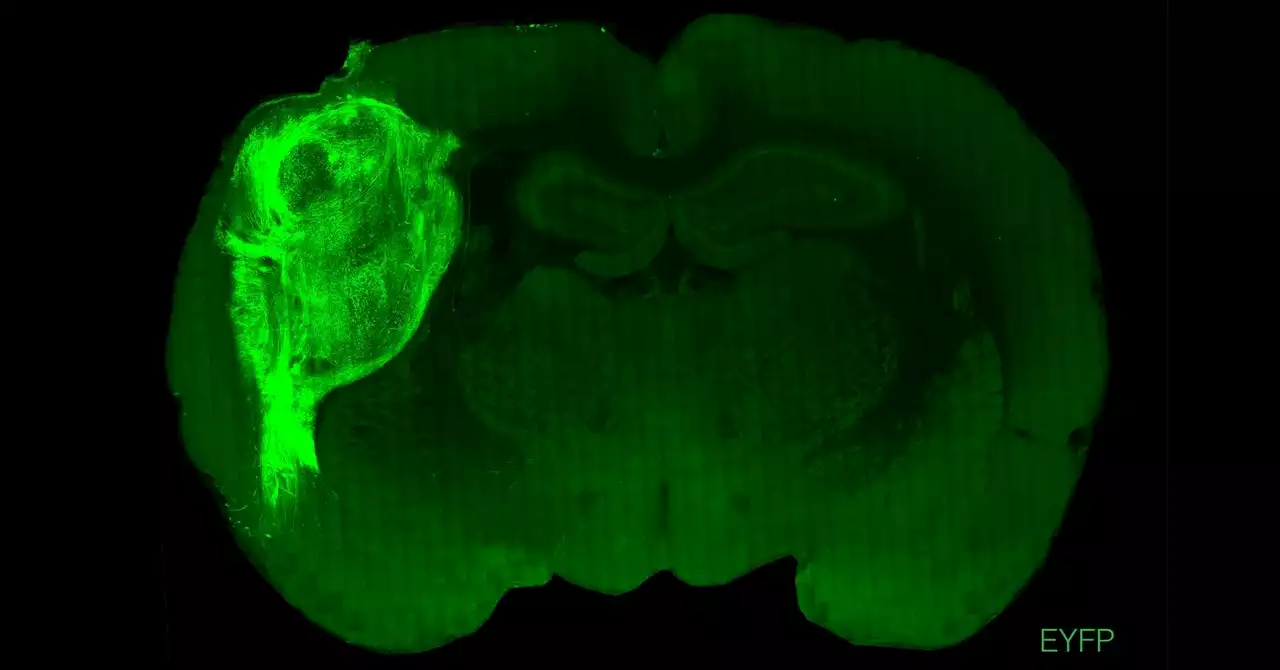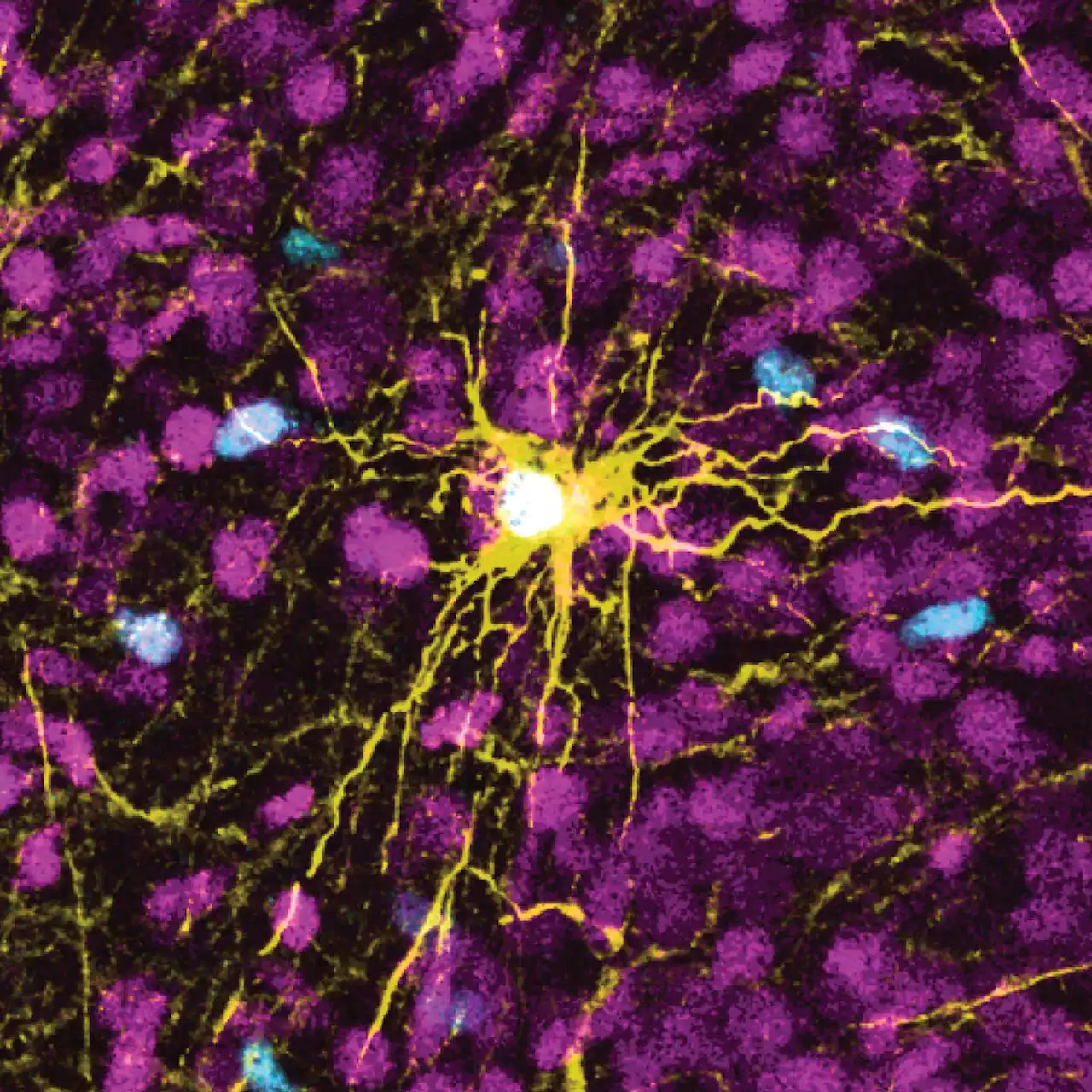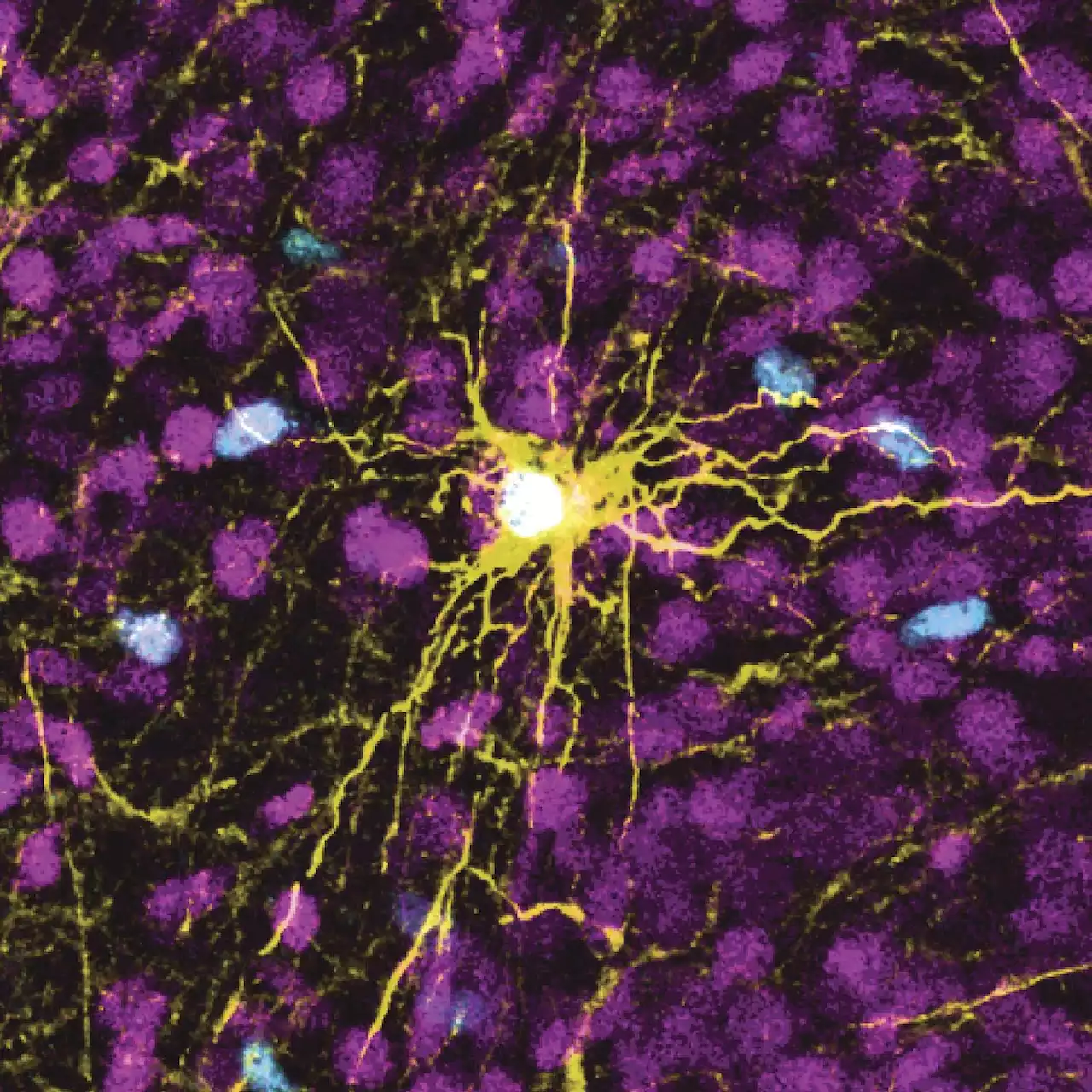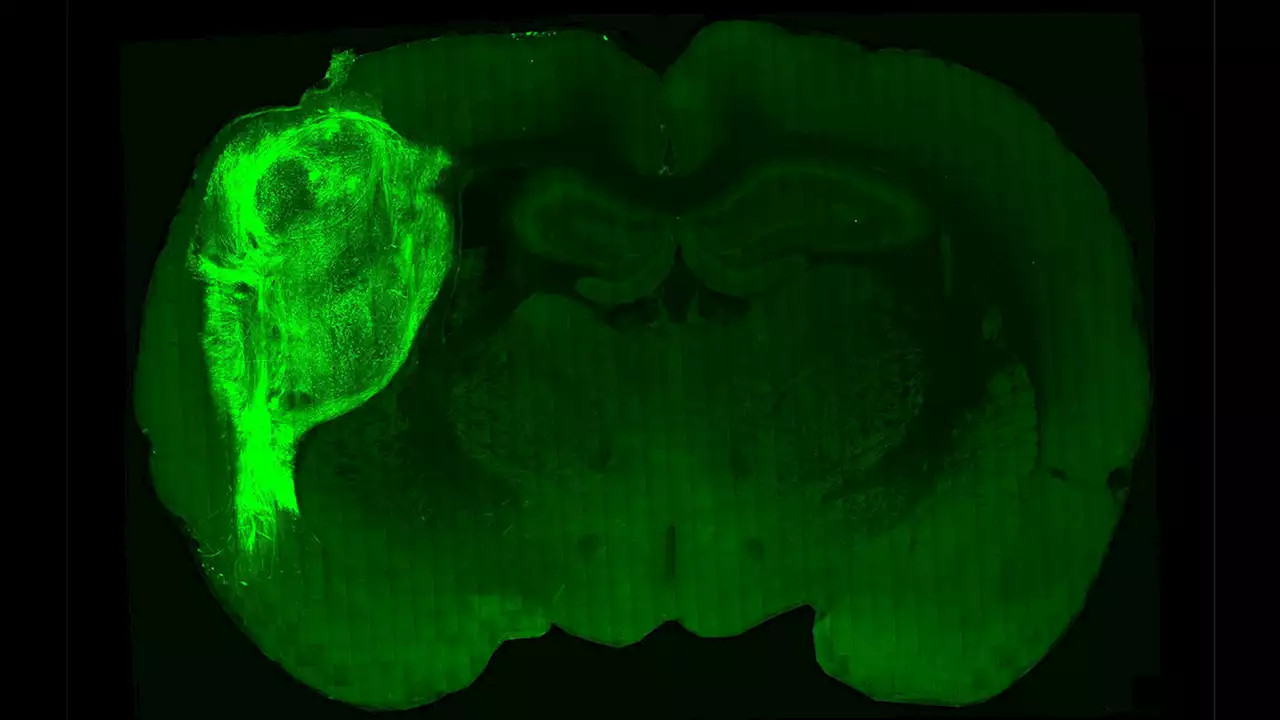'Human neurons become part of the rat circuitry.' Scientists hope that the experiment's human-rat transplants will give them a better understanding of how genetic mutations influence brain circuits and human behavior.
, producing results similar to the Stanford study. But they used adult mice, whereas the Stanford researchers chose newborn rats in order to see how the human neurons integrated with the rodents’ developing brain circuits.
Growing that type of tissue structure and then transplanting it"has not been done very often; in fact, maybe not at the level of precision that this paper is describing," Brivanlou said. Eventually, this type of rat model could be used to study psychiatric disorders, autism or neurodegenerative diseases like Parkinson’s or Alzheimer’s, and even to identify new treatments or test their effectiveness.
United States Latest News, United States Headlines
Similar News:You can also read news stories similar to this one that we have collected from other news sources.
 Lab-Grown Human Brain Tissue Works in RatsScientists integrated tiny cell clusters called organoids with the animals’ own tissue, a step toward developing sophisticated mini-models of the brain.
Lab-Grown Human Brain Tissue Works in RatsScientists integrated tiny cell clusters called organoids with the animals’ own tissue, a step toward developing sophisticated mini-models of the brain.
Read more »
 Scientists Transplant Human Tissue into Rat Brains, Opening Door to New ResearchScientists have transplanted human brain cells into rats. The technique could help us better understand conditions like autism and schizophrenia.
Scientists Transplant Human Tissue into Rat Brains, Opening Door to New ResearchScientists have transplanted human brain cells into rats. The technique could help us better understand conditions like autism and schizophrenia.
Read more »
 Scientists grow human brain cells in rats to study diseasesScientists have transplanted human brain cells into the brains of baby rats, where the cells grew and formed connections. It's part of an effort to better study human brain development and diseases affecting this most complex of organs, which makes us who we are but has long been shrouded in mystery. “Many disorders such as autism and schizophrenia are likely uniquely human” but “the human brain certainly has not been very accessible,” said said Dr. Sergiu Pasca, senior author of a study describing the work, published Wednesday in the journal Nature.
Scientists grow human brain cells in rats to study diseasesScientists have transplanted human brain cells into the brains of baby rats, where the cells grew and formed connections. It's part of an effort to better study human brain development and diseases affecting this most complex of organs, which makes us who we are but has long been shrouded in mystery. “Many disorders such as autism and schizophrenia are likely uniquely human” but “the human brain certainly has not been very accessible,” said said Dr. Sergiu Pasca, senior author of a study describing the work, published Wednesday in the journal Nature.
Read more »
 Scientists grow human brain cells in rats to study diseasesScientists have transplanted human brain cells into the brains of baby rats, where the cells grew and formed connections. It's part of an effort to better study human brain development and diseases affecting this most complex of organs, which makes us who we are but has long been shrouded in mystery.
Scientists grow human brain cells in rats to study diseasesScientists have transplanted human brain cells into the brains of baby rats, where the cells grew and formed connections. It's part of an effort to better study human brain development and diseases affecting this most complex of organs, which makes us who we are but has long been shrouded in mystery.
Read more »
 Clumps of human nerve cells thrived in rat brainsMany experiments grow human nerve cells in lab dishes. But a new study uncovers some real estate that’s a bit more unconventional: the brain of a rat.
Clumps of human nerve cells thrived in rat brainsMany experiments grow human nerve cells in lab dishes. But a new study uncovers some real estate that’s a bit more unconventional: the brain of a rat.
Read more »
